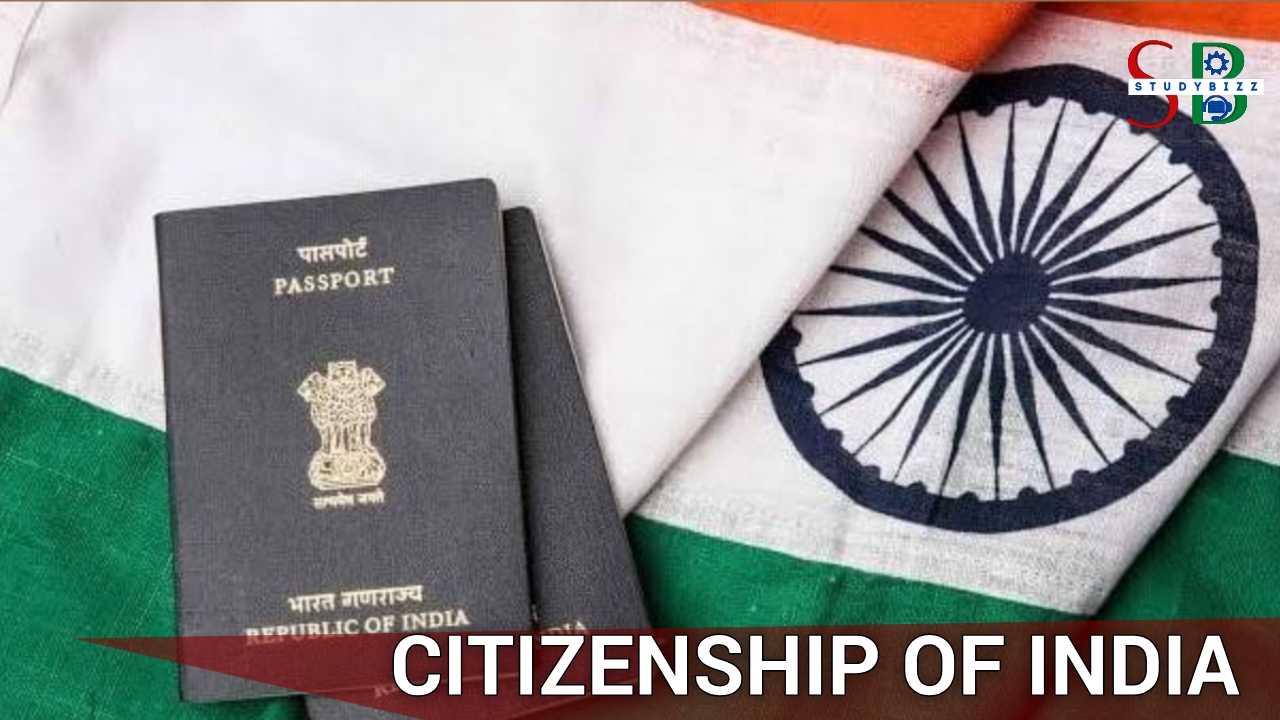Citizenship Act, 1955
The Citizenship Act of 1955, as amended by the Citizenship (Amendment) Act of 1986, 1992, 2003, 2005, 2015, 2019 and 2020, governs citizenship in India. The Act lays out the rules for acquiring, losing, and re-acquiring Indian citizenship.
1.Acquiring Indian Citizenship:
-
By Birth: A person born in India on or after January 26, 1950, but before July 1, 1987 is a citizen of India by birth. A person born in India on or after July 1, 1987, but before December 3, 2004, is a citizen of India if either of the parents is a citizen of India at the time of the person’s birth. A person born in India on or after December 3, 2004, is a citizen of India if both of the parents are citizens of India or one of the parents is a citizen of India and the other is not an illegal migrant at the time of the person’s birth.
-
By Descent: A person born outside India on or after January 26, 1950, but before December 10, 1992, is a citizen of India by descent if his/her father was a citizen of India at the time of the person’s birth.
-
By Registration: A person who is not a citizen of India by birth or descent can acquire citizenship of India by registration if he/she has been residing in India for a certain period of time, and if he/she is of good character, and intends to reside in India permanently.
-
By Naturalization: A person who is not a citizen of India by birth, descent, or registration can acquire citizenship of India by naturalization if he/she has been residing in India for a certain period of time, and if he/she is of good character, and intends to reside in India permanently.
2.Losing Indian Citizenship:
-
By Renunciation: A citizen of India may renounce his/her Indian citizenship by making a declaration to that effect to the Indian government.
-
By Termination: The Indian government may terminate the citizenship of a person if he/she has shown disloyalty to the Constitution of India or has rendered service to an enemy country.
3.Dual Citizenship:Dual citizenship is not recognized in India, so Indian citizens who acquire the citizenship of another country are expected to renounce their Indian citizenship. However, certain categories of Indian citizens, such as NRIs, PIOs, and OCIs, are eligible for special provisions that allow them to retain certain privileges, such as the right to vote in Indian elections and the right to hold certain types of Indian passport, while also holding the citizenship of another country.
4.Citizenship Amendment Act 2019:
The act amended the definition of illegal immigrant for Hindu, Sikh, Parsi, Buddhist and Christian immigrants from Pakistan, Afghanistan and Bangladesh, who entered India on or before 31 December 2014 and facing religious persecution there. The act also reduced the residency requirement for these groups from 11 years to 5 years for citizenship.
Article 5: Citizenship at the commencement of the Constitution
This article is about the citizenship for people at the commencement of the Constitution, i.e. 26th January 1950. This article primarily about those persons who have their domicile in Indian territory and
- Who was born in Indian territory; or
- Whose either parent was born in Indian territory; or
- Who has ordinarily been a resident of India for not less than 5 years immediately preceding the commencement of the Constitution.
Article 6: Citizenship of certain persons who have migrated from Pakistan
-
Article 6 of the Indian Constitution deals with the citizenship of persons migrating to India from the territories that became Pakistan after the partition of British India in 1947.
-
According to this Article, any person who has migrated to India from the territories that became Pakistan after the partition of British India on or after the 1st of March, 1947, and has entered India before the 19th of July, 1948, shall be a citizen of India.
-
Similarly, any person who has migrated to India from Pakistan after the 19th of July, 1948, but before the 1st of July, 1957, shall be a citizen of India if he/she has been registered as a citizen of India with the prescribed authority and has been resident in India for at least six months immediately before making an application for registration.
-
The article was added to the Indian Constitution by the Constitution (Thirteenth Amendment) Act, 1962, it was inserted to provide citizenship to persons who had migrated to India from the territories that became Pakistan after the partition of British India.
-
The Citizenship Amendment Act of 2019 and 2020 also amends the provision of citizenship by migration from territories that became Pakistan after partition of British India.
-
It provides citizenship to persons who had migrated to India from Pakistan and resided in India for a certain period of time before the registration process.
-
It allows the government to prescribe the authority and the process for registration of citizens under this article.
Article 7: Citizenship of certain migrants to Pakistan
-
Article 7 of the Indian Constitution deals with the citizenship of persons who are or have been citizens of the territories that became Pakistan after the partition of British India in 1947.
-
According to this Article, any person who is or has been a citizen of the territories that became Pakistan after the partition of British India, and who has migrated to India, shall be deemed to be a citizen of India as from the 19th of July, 1948, if he/she has been registered as a citizen of India with the prescribed authority and has been resident in India for at least six months immediately before making an application for registration.
-
This article applies to the citizens of Pakistan who had migrated to India after the partition of British India, and lived in India for a certain period of time before the registration process.
-
It allows the government to prescribe the authority and the process for registration of citizens under this article.
-
The article was added to the Indian Constitution by the Constitution (Thirteenth Amendment) Act, 1962, it was inserted to provide citizenship to persons who had migrated to India from the territories that became Pakistan after the partition of British India.
-
The Citizenship Amendment Act of 2019 and 2020 also amends the provision of citizenship by migration from territories that became Pakistan after partition of British India.
-
It provides the government to make rules and regulations for the registration of citizens migrated from Pakistan and residing in India.
Article 8: Citizenship of certain persons of Indian origin residing outside India
-
Article 8 of the Indian Constitution deals with the rights of citizenship of certain persons of Indian origin residing outside India.
-
According to this Article, the rights of citizenship of any person who is or has been a citizen of India and who is residing outside India shall be such as may be provided by or under any law made by the Parliament.
-
It provides for the rights of citizenship for Indian citizens living outside India as may be provided by law.
-
It allows the parliament to make laws to provide rights of citizenship to Indian citizens residing abroad.
-
The law could include provisions for dual citizenship, Overseas Citizenship of India (OCI) or Person of Indian Origin (PIO) status, voting rights, and other privileges for Indian citizens living abroad.
-
The law made under this article could also provide for the loss of Indian citizenship for those who acquire the citizenship of another country, or for those who engage in activities prejudicial to the interests of India or its citizens.
-
The government of India has made several laws and regulations to provide rights of citizenship to Indians living abroad, such as the Citizenship (Amendment) Act, 2003, which introduced the Overseas Citizenship of India (OCI) scheme and the Citizenship (Amendment) Act, 2015 which introduced the Person of Indian Origin (PIO) scheme.
Article 9:
-
Article 9 of the Indian Constitution states that no person shall be a citizen of India or continue to be a citizen of India if he/she voluntarily acquires the citizenship of any foreign state.
-
It means that if any Indian citizen voluntarily acquires the citizenship of any other country, he/she will lose his/her Indian citizenship.
-
The article is a provision to prevent dual citizenship, and to ensure the loyalty of Indian citizens to the nation.
Article 10 :
-
Article 10 of the Indian Constitution deals with the rights of citizenship of certain persons of Indian origin residing outside India.
-
According to this Article, No person shall be deprived of any rights or be liable to any penalty or forfeiture under the law of the Union or of any state on grounds only of religion, race, caste, sex, descent, place of birth, residence or any of them.
-
This article prohibits the government from denying any rights or imposing penalties or forfeitures on the basis of religion, race, caste, sex, descent, place of birth, or residence.
-
It means that the government cannot discriminate against any individual on the basis of their religion, race, caste, sex, descent, place of birth, or residence.
-
This article is a fundamental right, which means that any laws or actions that violate this article can be challenged in the courts.
-
This article is a key provision that ensures equality and non-discrimination for all citizens and helps to protect the rights of minority groups.
Article 11 :
-
Article 11 of the Indian Constitution deals with the power of Parliament and the state legislature to make laws with respect to the acquisition and termination of citizenship.
-
According to this Article, Parliament has the power to make laws with respect to the acquisition and termination of citizenship and all other matters relating to citizenship.
-
This article grants the Indian Parliament the power to make laws regarding citizenship and related matters, including the acquisition of citizenship by birth, descent, registration, or naturalization, as well as the loss of citizenship by renunciation, termination, or any other means.
-
The State Legislatures also have the power to make laws with respect to the acquisition and termination of citizenship, but such laws must not be inconsistent with the laws made by the Parliament.
-
This article also empowers the Indian Parliament to make laws regarding dual citizenship, rights of citizenship for Indian citizens living abroad, and other matters related to citizenship.





Leave a Reply